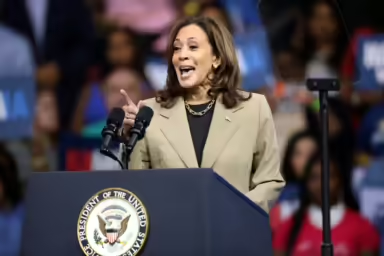 It’s like some kind of horror movie in which people are behaving verrrry strangely. First, though, we don’t see anything odd at all. For example, The Associated Press reports in a new poll that
It’s like some kind of horror movie in which people are behaving verrrry strangely. First, though, we don’t see anything odd at all. For example, The Associated Press reports in a new poll that
More than half the country backs raising taxes on the richest Americans
But then there’s the vague notion of something slightly amiss. Slate emphasizes the fine print:
Only 39 percent support President Obama’s plan to repeal tax cuts for those making more than $200,000, while 15 percent think the tax cuts should lapse for everyone. The numbers suggest that President Obama’s plan to selectively reinstate higher taxes on the rich may not be met with the populist support Democrats are hoping for in the run-up to the November elections.
So what’s going on here? Given how hard things are for most people right now, why do more people not support letting the affluent pay a greater share to reflect the benefits they enjoy at the top of the heap? What are the motivations? What has shaped their thinking? What makes people behave so strangely?
Are those being polled already benefiting from some Reaganesque trickle-down effect? Have they been convinced by the argument that low taxes on the rich will produce jobs? Are they “expectant capitalists,” looking forward to the days when the American Dream comes true for them, too?
But wait. There’s more coming in this B Movie. See the Washington Post reporting that
Even as they hammer Democrats for running up record budget deficits, Senate Republicans are rolling out a plan to permanently extend an array of expiring tax breaks that would deprive the Treasury of more than $4 trillion over the next decade, nearly doubling projected deficits over that period unless dramatic spending cuts are made.
….and the new report from the Census Bureau that last year, 14.3 percent of American were living in poverty, the highest level in decades.
…and a new article from the New York Times showing that union members are not sufficiently excited about the Democrats to do much to help them keep a majority in Congress.
That’s remarkable, given the indisputable fact that as a party, the Democrats consistently and vocally advocate for legislation supported by unions. What can this be about? Workers are disappointed that more has not been done to ameliorate the effects of the economic collapse and get more people working again. But that’s hardly for lack of trying on the part of the Dems, more that their most ambitious efforts have been stymied by the other party.
So, again, what’s going on here? Why are so many people inclined to either inaction or to support for positions that are at odds with their own interests? The answer, in all probability, is what it always is—a very clever effort, funded by exactly those few who stand to gain—to confuse, distract, discourage and disenfranchise the majority so it ends up giving away an opportunity to fix its own state of affairs.
One doesn’t need to be for progressive taxes; one can be rich or poor, Democratic or Republican, whatever, and still see that something doesn’t add up. Just as it didn’t add up that many people with no or limited or inferior health coverage were convinced that having more comprehensive insurance was somehow going to harm them. It’s not just about a lack of faith in government, about waste and bloat, all the usual suspects. There’s more to this story.
Image Credit: (https://www.allhorrormovies.com/best-horror-movies.html)


